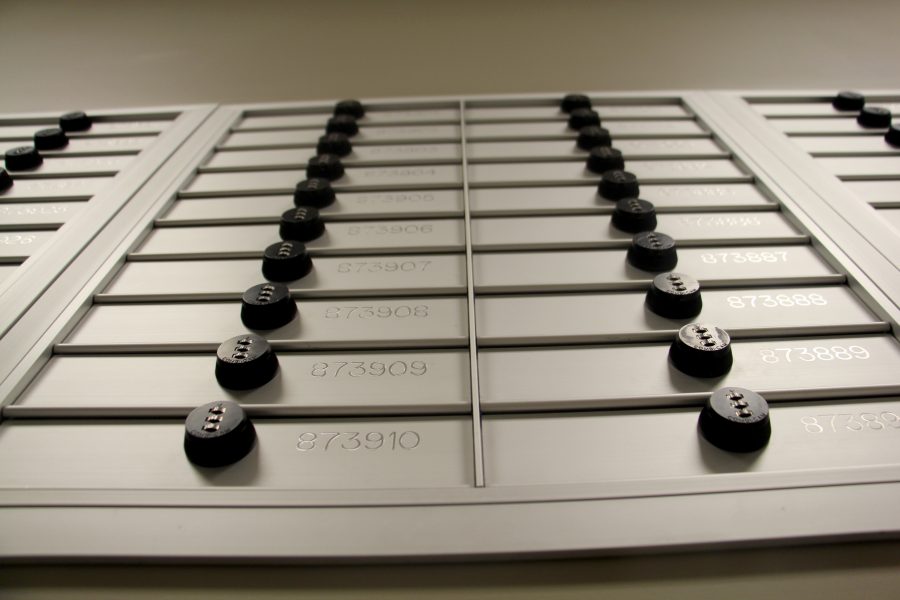In 1950, it cost $1.50 to vote in Alabama. In 2015, it costs $60. The former was due to a poll tax and the latter due to a flaw in The University of Alabama’s mail system.
At the University, students can receive packages and other trackable items for free, but to receive letter mail as well, they must rent a mailbox for $60 a semester – up from $50 last year. That means students have to pay a significant amount if they want an absentee ballot for their home state’s elections.
Political science professor Richard Fording said this deficiency in the mail center policies will cause a decrease in the number of students voting.
“Getting an absentee ballot is difficult enough as it is,” Fording said.
Dana Sweeney, a junior majoring in English, sent for an absentee ballot for the 2014 midterm elections, but it was returned to his local registrar as “undeliverable” since he didn’t have a mailbox – something he didn’t think would matter considering the importance of the mail.
Sweeney had to request another ballot be sent to his parents’ house, a difficult task due to voter fraud concerns, which they then sent to him in a package.
After the election, Sweeney reached out to Mike Butts, the director of Campus Mail Services. Sweeney said Butts was very generous with his time and listened to his concerns, but that the meeting ultimately went nowhere.
Mike Butts was unable to meet in person, but has been in contact via email through Chris Bryant, the interim director of Media Relations.
Beyond renting a mailbox on campus, Butts suggested that students who want an absentee ballot request that it be sent to them in a trackable manner, have it sent in a package like Sweeney or vote electronically.
David Grady, the vice president of Student Affairs, had similar proposals. He also suggested that students could send the ballot to their greek house, to the address of an off-campus friend or that they participate in early voting in person if it is around the time of a school break or a trip home.
For some students, none of those are particularly viable options, considering that not all registrars allow for trackable options, and those that do could charge fees, that not all families have the expendable income to ship a ballot in a box, and that most of the states that allow for electronic voting only do so for overseas voters.
There are also plenty of non-greek students and students who don’t know people living off-campus. As for early voting, not all states have it, and students from the states that do may not be able to make it home to vote, regardless of if the early voting period coincides with a school break.
Sweeney said he understands that students living on a college campus need to have a mailbox to receive an absentee ballot, but he thinks the current mail center system is an unfair penalty to students.
“If you’re paying for on-campus housing, you should have access to an absentee ballot,” Sweeney said.
In regard to future changes, Butts said, “The Campus Mail Service continually evaluates its operations and looks for ways to better serve students.”
Since no changes were made after Sweeney brought the issue to Butts’ attention last year, it is unclear if any will be made and if they will be made by Butts.
The change may be made by the Division of Student Affairs.
Since first speaking with him, Grady said he has spoken to the Division of Financial Affairs to look and see what type of options are available to facilitate students who don’t have a mailing location for a ballot to be sent to.
With the primary and presidential elections coming up, Sweeney said he feels that now is the time to find a solution to this problem. Whether it be designating a mailbox or bin for absentee ballots only or creating special mail-stop codes for students to use when having a ballot sent to them, there are multiple possibilities to consider.
“Students should not have additional obstacles placed in their way if they are interested in voting,” Sweeney said. “And I feel like that is what this policy is doing. It is unfairly privileging students who have the resources to rent out a mailbox, and it is providing a disservice to thousands of students who live on campus who don’t have access to one.”







